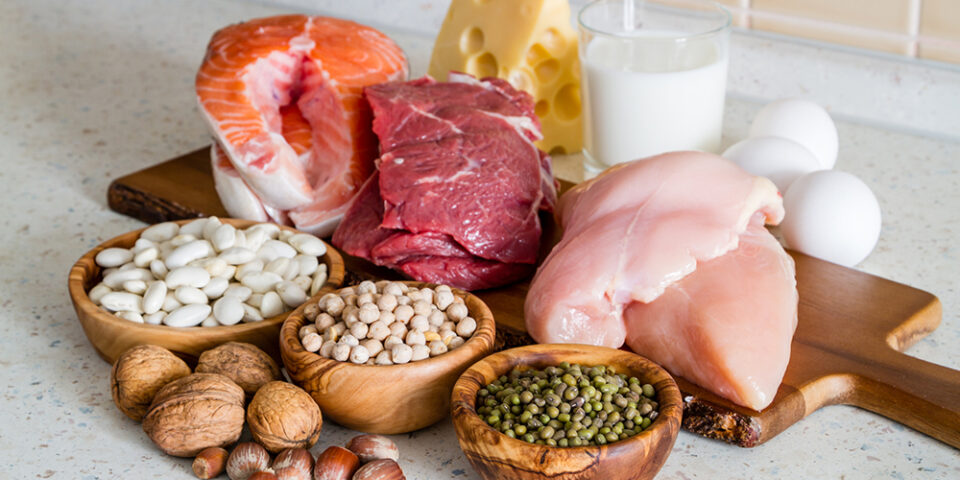Should I be eating a high protein diet?
Whether your goal is “six-pack abs” or you’re just looking to build muscle and improve your strength, you might be considering a high protein diet. How much protein do you actually need, and is it possible to eat too much protein? Registered dietitian nutritionist Lisa Money explained what to know.
How much protein does your body need?
Protein is a macronutrient, like carbohydrates and fat, which your body needs in large amounts. Protein helps contribute to muscle, bone, tissue and even improves the immune system.
“Your body needs protein every day and cannot make it,” Money said. “If you don’t eat protein, your body is going to look for protein already in the body, and it tends to tear down its own muscle.”
The recommended dietary allowance of protein for the average person is .8 grams per kilogram, and a kilogram is 2.2 pounds. For example, a 150-pound person would need at least 55 grams of protein. People who might need more protein are athletes who are building tissue and patients who are recovering from surgery.
“As westernized countries, we tend to have adequate levels of protein in our diets,” Money said. “In recent years, there are certain demographic groups who might not be getting enough protein. Women over the age of 52 and adolescent girls tend to have low protein intakes and would benefit from including a lean or plant-based protein at meals and snacks.”
Is too much protein bad for you?
“We used to think that a high protein diet was detrimental to the body, but we’re finding that that higher protein intake, up to 2.2 to 3 grams per kilogram, does not have any risk for the average person,” Money said.
Those who have chronic kidney disease or who are at risk for kidney stones or cardiovascular disease, however, should refrain from eating high amounts of protein, especially red meat and protein with saturated fat, such as full-fat dairy products.
What type of protein is best?
Money offered some healthier protein choices:
- Lean red meat. “Lean red meat is still considered one of the best protein choices, but a little bit goes a long way,” Money said. “What’s great about lean red meat is that it has all the B vitamins, zinc and iron, but you only need 3 ounces, three times a week. Most Americans get way more than that amount, and that’s where it can have deleterious effects to your health.”
- Poultry. Chicken is a great option because it’s lower in fat.
- Fish. Salmon contains omega-3 fatty acids which help with recovery for athletes and support brain health.
- Eggs and low-fat dairy. “I usually suggest eggs as a more affordable option,” Money said. “Having a more affordable option for your protein choice is more sustainable.”
- Nuts. Peanut butter is a plant-based protein that provides 6 grams of protein in 2 tablespoons.
- Pasta. “People forget that pasta has some protein,” Money said. “If you pick a whole grain source, you’re going to have at least 6 grams of protein for a cup of pasta.”
- Legumes. One cup of lentils will give you 18 grams of protein, as well as zinc, fiber and vitamins.
“I would just remind people to choose healthy sources of protein and avoid the protein sources that are highly processed with high amounts of fat and sodium,” Money said. “If you do that, and you spread out your protein intake throughout the day, your body will build muscle much more effectively and efficiently.”
Find an orthopedic specialist you trust
Find a provider who’s right for you by viewing their online profiles, star ratings and reviews.
Find an Orthopedic Doctor

